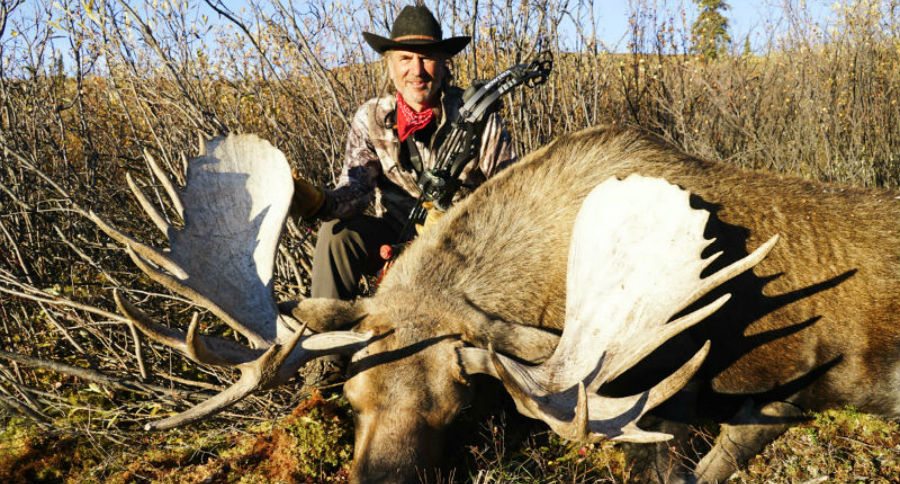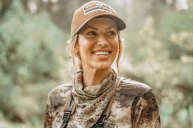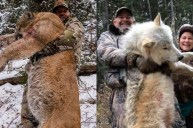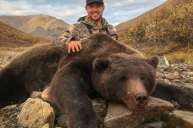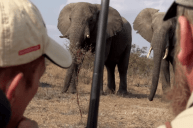In this second installment of our interview with famed hunter and conservationist Jim Shockey, we talk about divisiveness in the hunting community and more.
Continuing our conversation with celebrated hunter conservationist Jim Shockey, I only had a few questions left for Jim, which he answered thoroughly and thoughtfully.
For part one of this interview with Jim Shockey, go here.
Let's get right to it.
I mentioned that the popular narrative that allegedly accepts meat hunting over trophy hunting has seemed to creep into the hunting ranks.
Often, when online discussions center on a "grip and grin" type of image, some hunters will inevitably declare that they hunt purely for meat acquisition, and will disparage the hunter who may want more from his experience (antlers, a mount, a bigger, older animal, etc.).
Strictly meat hunting, I said, is what ultimately led to the near extinction of many wild game species prior to the advent of the North American Model of Wildlife Conservation back in the 1860s. Do these hunters really understand what they're advocating, I asked?
Shockey seized upon this division within the hunting community.
"It's really not defensible in the long run," he said. "Before the North American Model, 'pure' meat hunting was a way of life, it was a necessity. Most people hunted solely to put food on the table or money in their pockets. Market hunters did that. They hunted to feed the nation and pay their bills."
"But it's not a sustainable system. In the long run it depleted the resource. We saw that happen. It wasn't until Roosevelt and other men of that era began to change the narrative from strictly meat hunting to selective hunting - trophy hunting - that ethics began to be inserted into the practice. There were no ethics involved in meat hunting. However you could easily and most efficiently procure the animal was the goal, and ethics had little to do with it."
"But I don't think hunters who say they hunt only for meat are really being honest with themselves. I mean, you can buy meat from a grocery store cheaper than what it costs you to get it by hunting. If meat was truly the only reason for them hunting, then they wouldn't hunt."
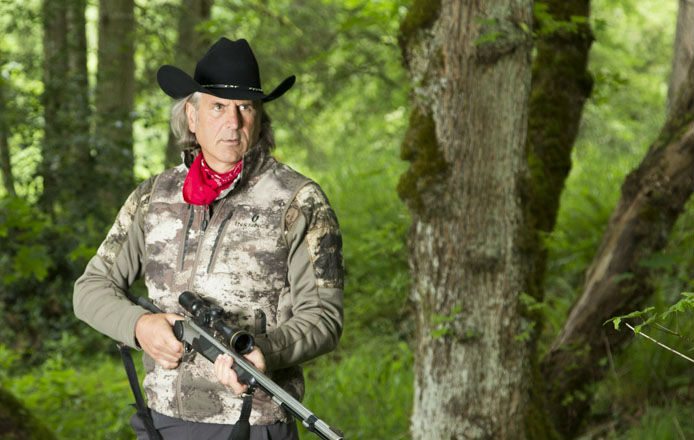
"Surely hunters hunt for many reasons, meat acquisition being one very good reason. But there's more to it than that. These hunters are also selective hunters. Their goal may be to kill that fat cow moose we talked about earlier. So they will pass up a bull. That's selective hunting."
"The experience is also part of it too, of course. How many hunters avoid shooting the first animal they see, just so they can stay out longer and have a more memorable experience?"
"So no. Saying that you only hunt for meat makes it easier to get by at dinner parties. You don't have to confront the stigma that is now associated with trophy hunting. But meat hunters are also selective hunters. They just have slightly different qualifiers of 'trophy' for themselves."
Bouncing off of that, Shockey segued into habitat loss and factory farming.
"We currently have 7.5 billion humans on the planet, David," he told me. "7.5 billion. In many areas the animals are running out of space. Do you know how many chickens there are in the world? It's something like 25 billion. That number of chickens requires a tremendous amount of resources, in land, feed, and so on."
"Factory farming for cattle, chickens, hogs...imagine the resources it takes to sustain that system. Now imagine if we went back to market hunting, where we fed the country with what the land naturally produces. It's not sustainable. And it's certainly not more noble or ethical than trophy hunting or selective hunting."
"Everything has to have some sort of value to it. If we're hunting purely for meat, then that value can be reduced to the dollar amount we place on that animal. If cow meat has a value of 1.50 a pound and deer meat has a value of .90 cents a pound, which will we value more? Which will we conserve and protect?"
"Hunting has a spiritual element to it," he continued. "There is a spiritual value associated with these animals, in addition to other values. But how do we quantify that kind of value. It's immeasurable. Hunters put in more than they take out, as far as monetary value goes."
"That's why I believe selective hunting is essential to the conservation of so many species. Because if we reduce hunting to simply a meat acquisition game, then it loses that spiritual value - or at least it loses much of the spiritual value - that we associate with wild animals."
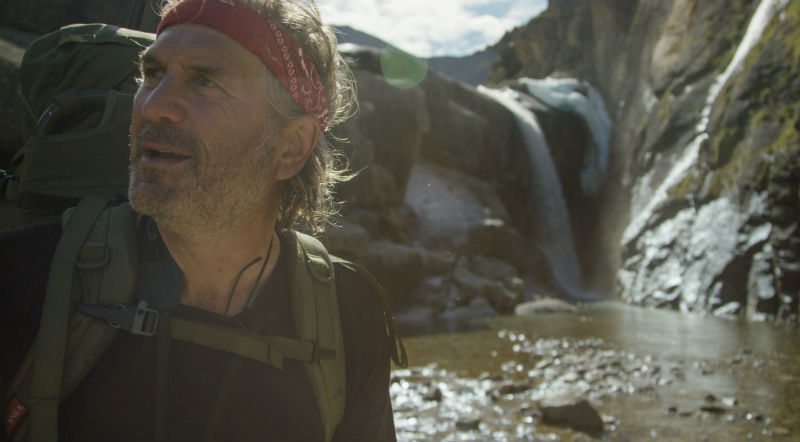
I then asked Shockey about the rise in the number of female hunters, which is greater than the recruitment of the male hunter demographic. This change in the hunting demographic is very significant, and has many implications for the future of the sport. "Your daughter, Eva, is one of the new faces of hunting," I said. "What are your thoughts on this 'new' image of hunting?"
"Well," replied Shockey, "the numbers say that about 10 percent of the population hunts. And the implication is that 90 percent of the population doesn't hunt or is against hunting. But that's not true. Relatively few extremists are actually against hunting. Something like 80 percent of the population approves of hunting for food, and many of those people participate in hunting by being on the receiving end of hunters giving away much of what they harvest."
"Unless you mention 'trophy hunting,' which takes us back to our discussion of terminology. Trophy hunting is seen as a negative, but people will approve of 'selective hunting.' And while it may be that only 10 percent of the population is actually taking to the field, if you include the people in a hunter's family who may not hunt, the actual number of people who participate in hunting - on a family basis - is closer to 30 percent."

Shockey got a little philosophical at this point.
"The world was a different place a hundred years ago. I mean, it wasn't that long ago really, that women weren't even allowed to vote! How crazy is that?!"
"But women participating in the hunting tradition is nothing new. They have always participated, it's just that the role they assume may have changed slightly. Now more women are actually taking to the field, hiking the mountains, sitting in tree stands. And the hunting market is specifically adapting to female hunters."
"Hunting has always been a great way to spend time with family and friends. It is a communal activity. Women have always been a part of that."
"And I'll tell you, the anti-hunters hate this," Shockey asserted. "They hate that women are visibly and overtly getting into hunting. You see a picture on social media of some guy kneeling next to a bear and you will get a few negative comments, but you show a picture of a woman kneeling next to a bear she's killed and the anti's come after her with guns blazing!"
"I think it was Steve Rinella who opined that there is an element of sexism associated with the vicious attacks on female hunters. I think he's right. Anti-hunters don't know what to do with a female hunter. It messes with their paradigm."
"It's easy to come after a Neanderthal guy like me - for anti-hunters we men easily fit the stereotype of the slob hunter. But you have a female hunter like Eva - someone who's a young, articulate, competent lady, who clearly doesn't fit the stereotype - they don't know how to address that."
"I think it's fantastic, this influx of female hunters. It can only be good for hunting. And while hunting is increasing its ranks with women hunters, the animal rights people aren't increasing their numbers. It's a very good thing."
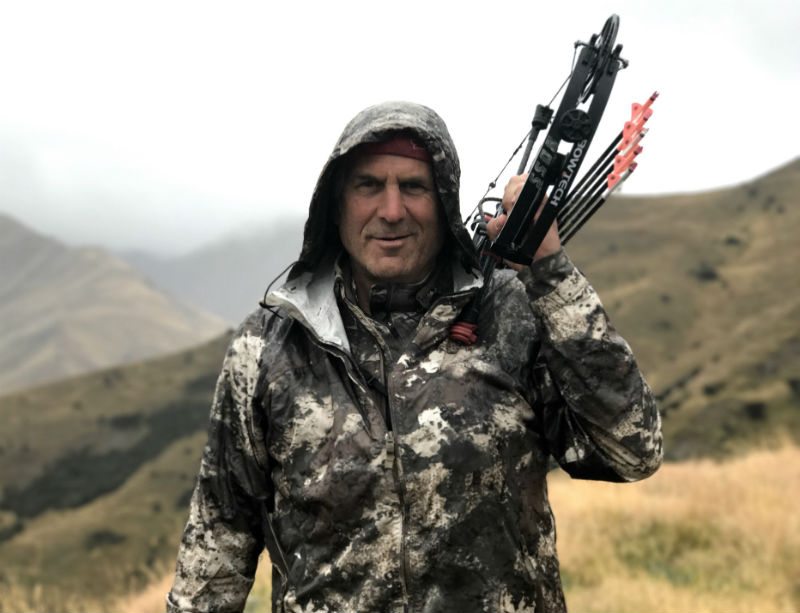
Finally, I asked Jim about television programming and hunting shows. Where does he see the direction of the medium headed?
"Television is constantly evolving," he replied. "I remember back in the early days. I used to write for magazines, which is about telling stories. I wanted to tell a story with my television show too. That was my goal. This was back when we had VHS tapes, and the sound quality wasn't very good and the video production quality was pretty atrocious by today's standards. But we told a good story."
"We've evolved too, and our production standards are, I believe, top notch. There will always be room for good story tellers, for shows that can do that. Hunting TV is ultimately about entertainment."
"Uncharted [Shockey's hunting/travelogue program] is an example of good storytelling. That was my son Branlin's concept. It's a unique show in that it highlights different cultures and people as much as it is about hunting. I'm very proud of what we do in that show."
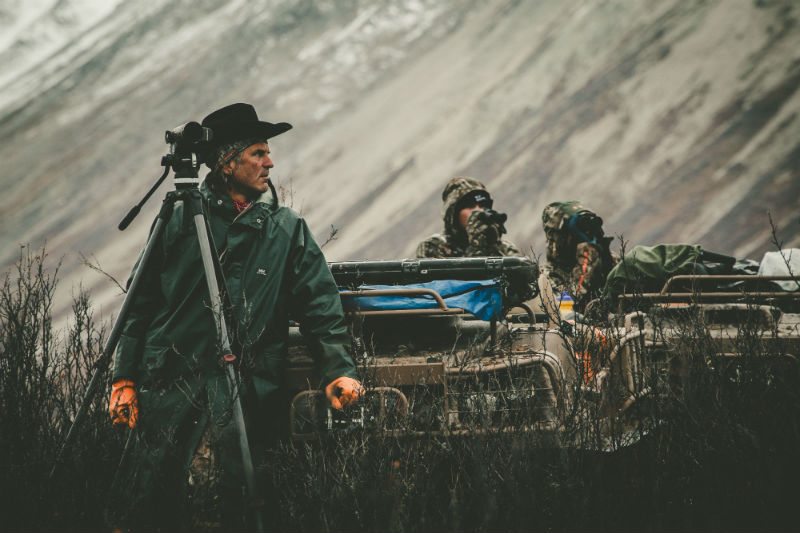
"I can't speak for other producers or hosts, but ultimately television or video production is about supply and demand. It's about what people are willing to pay for. Shows, for example, that show a lot of kill shots - there's an audience for those kinds of shows. And I'm not saying that those are good or bad. The point is that the people who distribute the show will bow to the demand, and the demand will determine what shows are being presented."
"There's nothing wrong with shows that appeal strictly to the hunter. Shows that focus on the kill - I mean, the things that you see on primetime TV are so much more disturbing than anything shown on a hunting program."
"Primetime television programming shows people getting killed in the ugliest of ways - truly disgusting stuff. I can't even watch those shows. It's horrible. And yet some people will criticize a hunting show that shows a kill shot of an animal. It's hypocrisy at its worst."
"But my hope is that shows will be produced that will entertain both the hunter and the non-hunter. I think that's what we're doing with Uncharted. I hope that the demand will be there for programs that reach a greater audience and that show what hunting is all about. Because hunting obviously is about so much more than just the kill."
"To paraphrase José Ortega y Gasset, I don't hunt to kill, I kill to have hunted. I'm hopeful that future hunting productions will find the magic line that will appeal to two spheres, both the hunting and the non-hunting public. When we can do that, we'll have won the day."
Like what you see here? You can read more great articles by David Smith at his facebook page, Stumpjack Outdoors.
NEXT: Shane Mahoney Tell Hunters To Take Big Steps For Wildlife
WATCH
